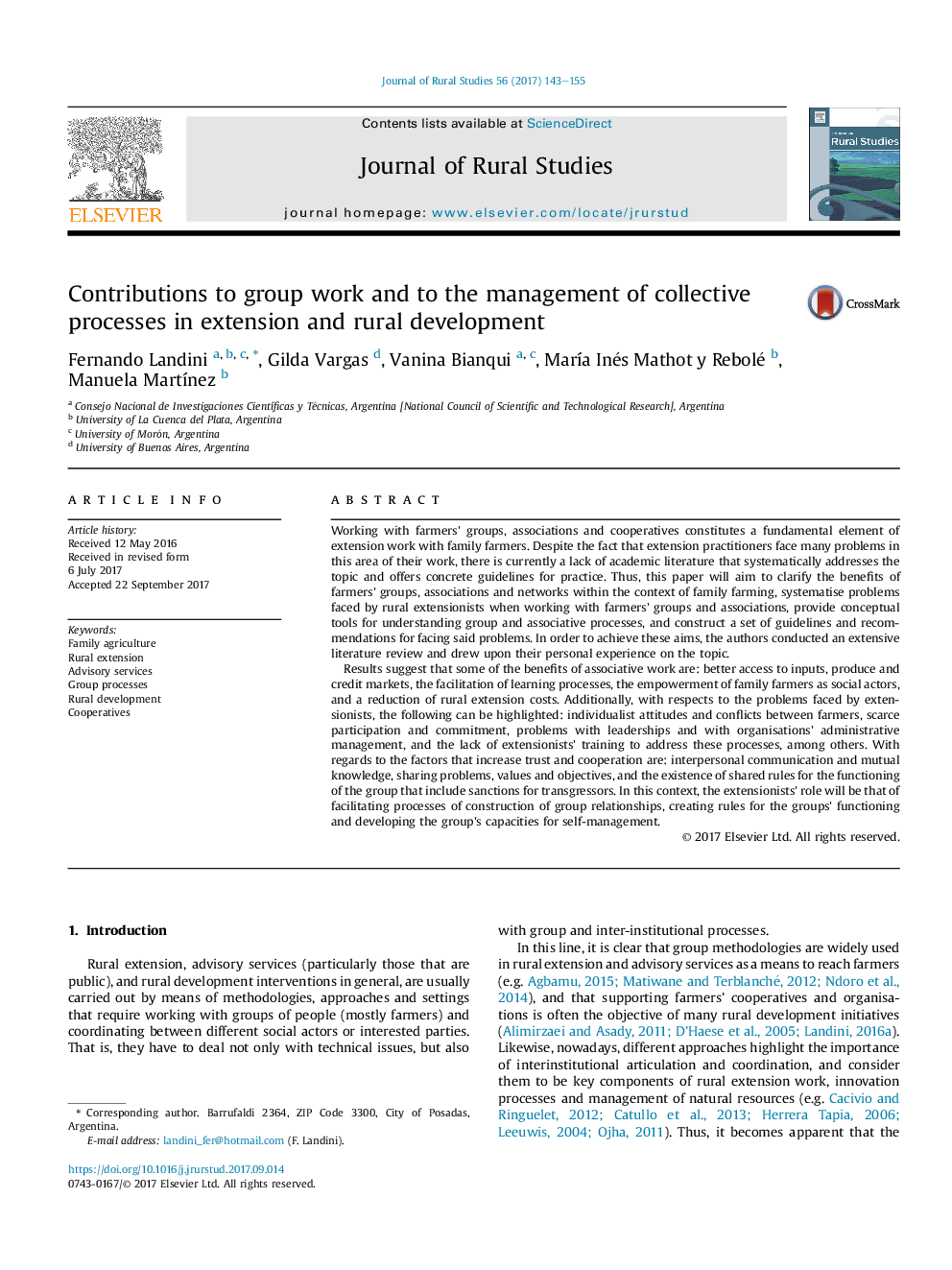| Article ID | Journal | Published Year | Pages | File Type |
|---|---|---|---|---|
| 4759929 | Journal of Rural Studies | 2017 | 13 Pages |
Abstract
Results suggest that some of the benefits of associative work are: better access to inputs, produce and credit markets, the facilitation of learning processes, the empowerment of family farmers as social actors, and a reduction of rural extension costs. Additionally, with respects to the problems faced by extensionists, the following can be highlighted: individualist attitudes and conflicts between farmers, scarce participation and commitment, problems with leaderships and with organisations' administrative management, and the lack of extensionists' training to address these processes, among others. With regards to the factors that increase trust and cooperation are: interpersonal communication and mutual knowledge, sharing problems, values and objectives, and the existence of shared rules for the functioning of the group that include sanctions for transgressors. In this context, the extensionists' role will be that of facilitating processes of construction of group relationships, creating rules for the groups' functioning and developing the group's capacities for self-management.
Keywords
Related Topics
Life Sciences
Agricultural and Biological Sciences
Forestry
Authors
Fernando Landini, Gilda Vargas, Vanina Bianqui, MarÃa Inés Mathot y Rebolé, Manuela MartÃnez,
